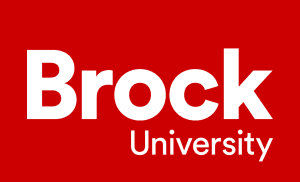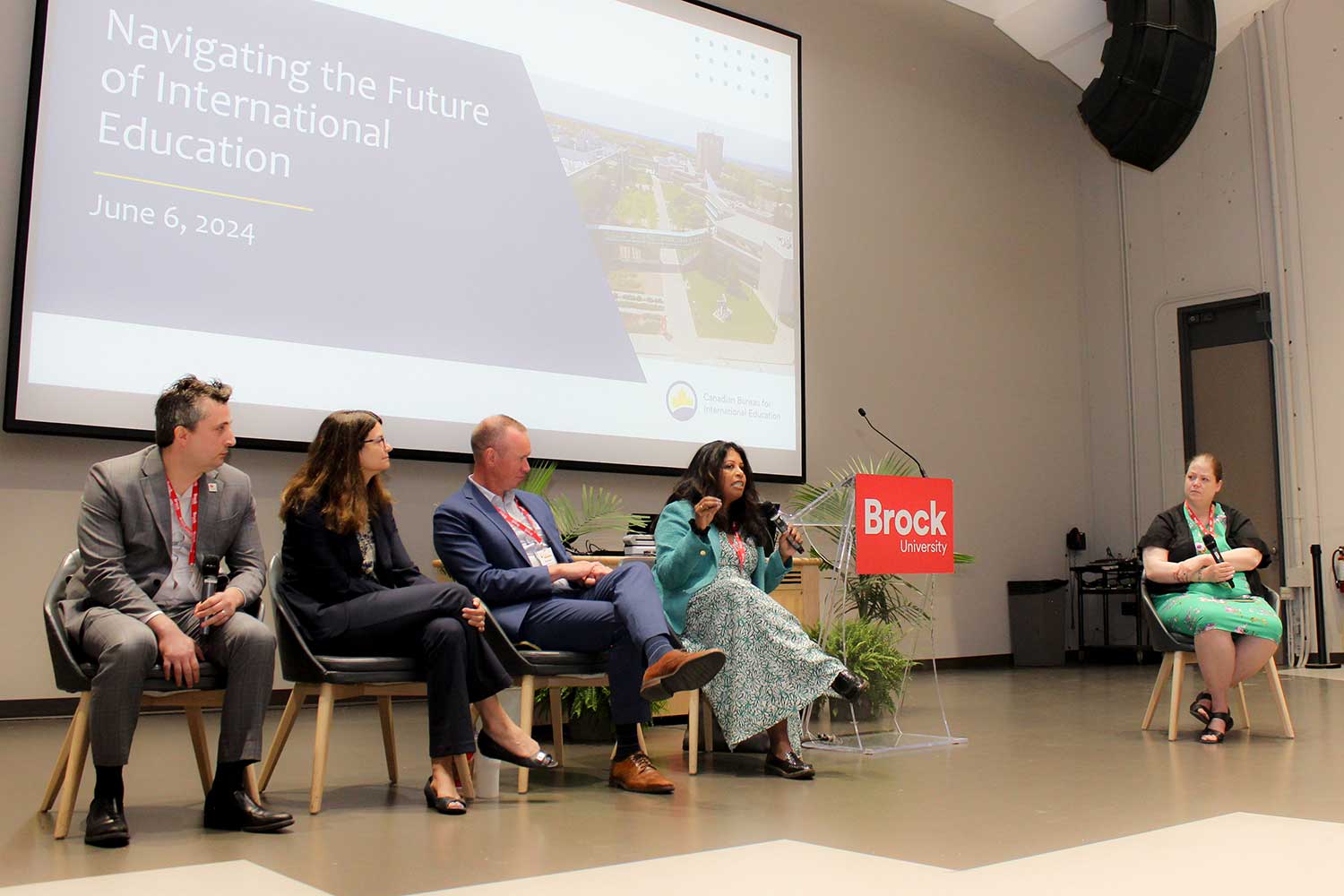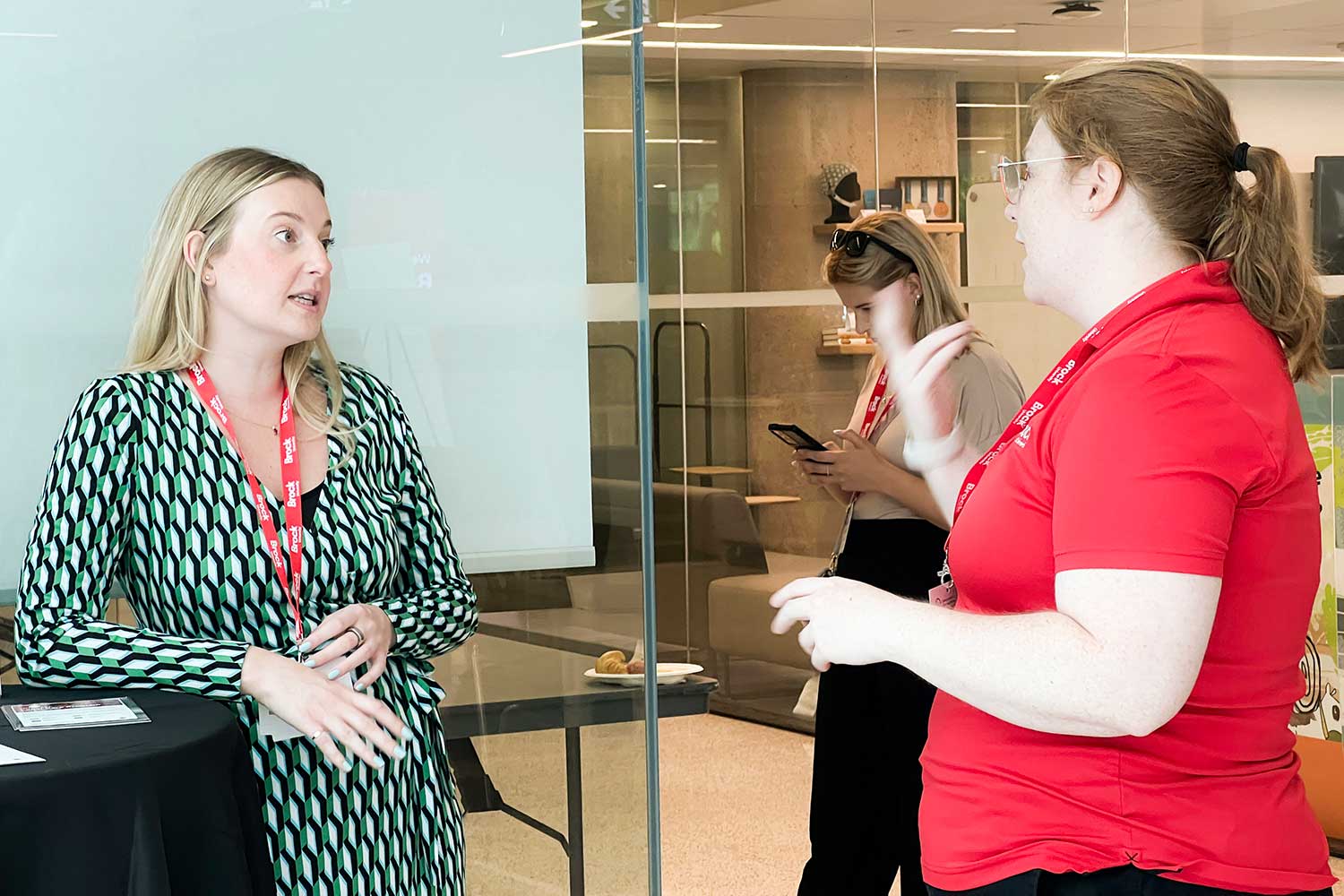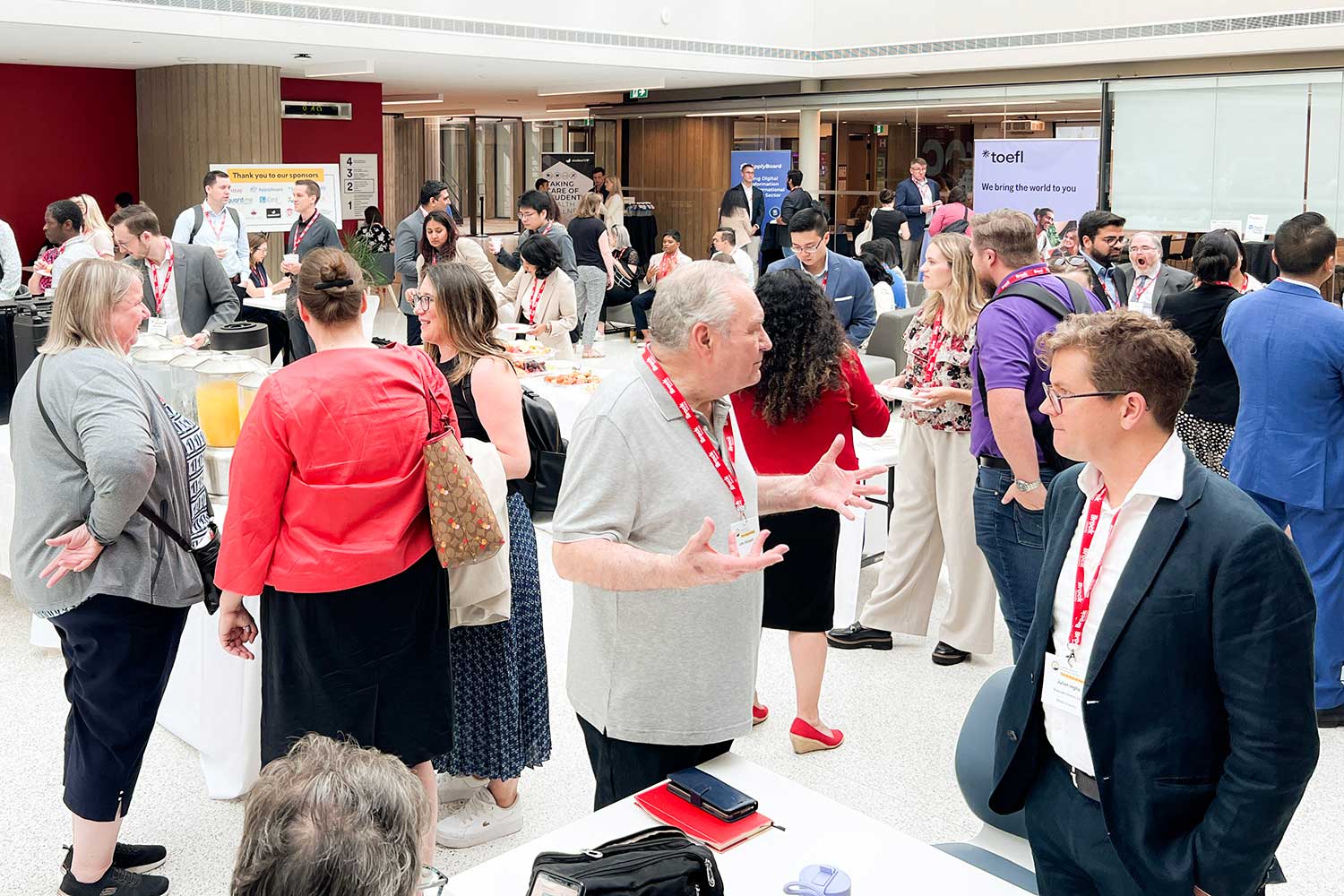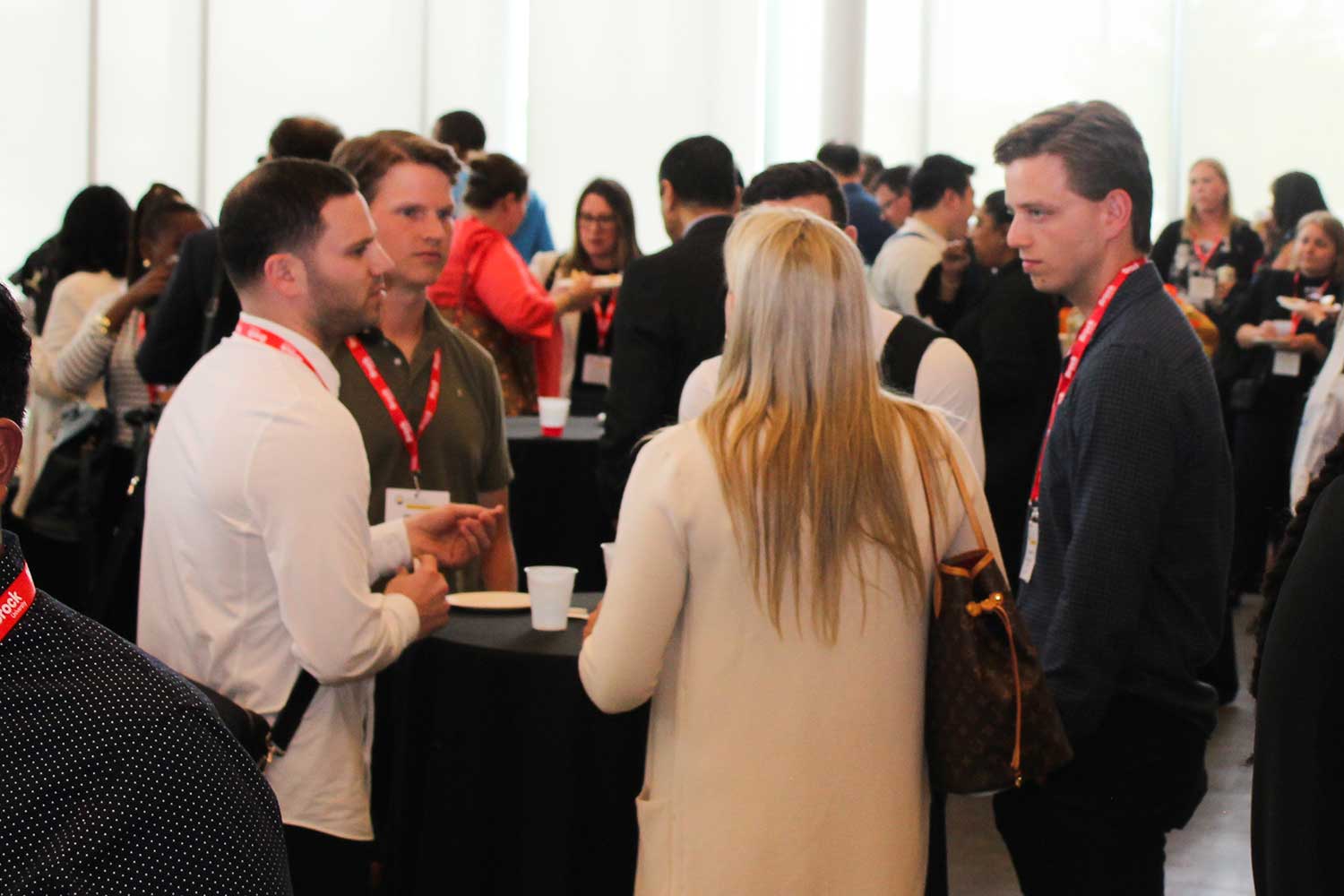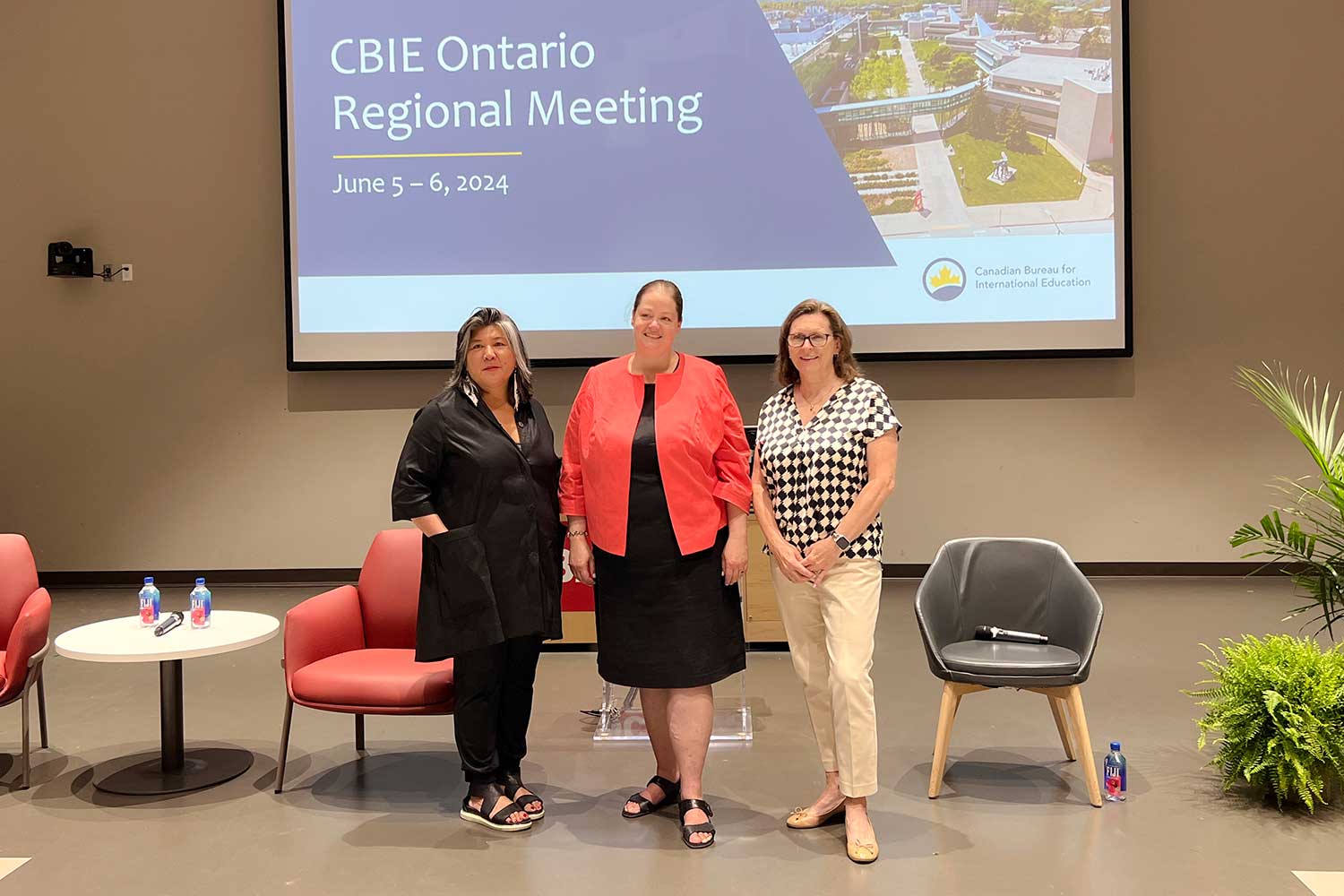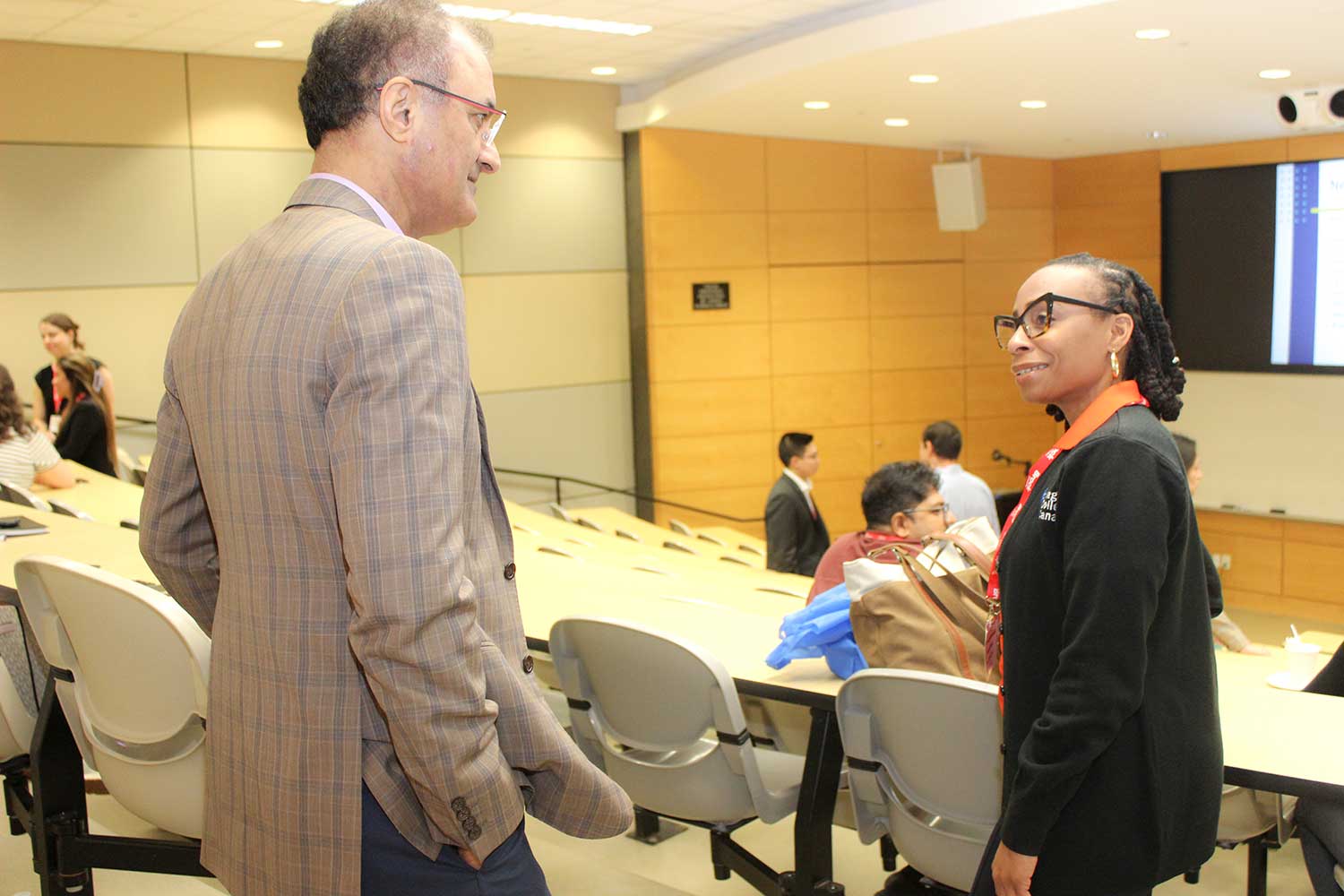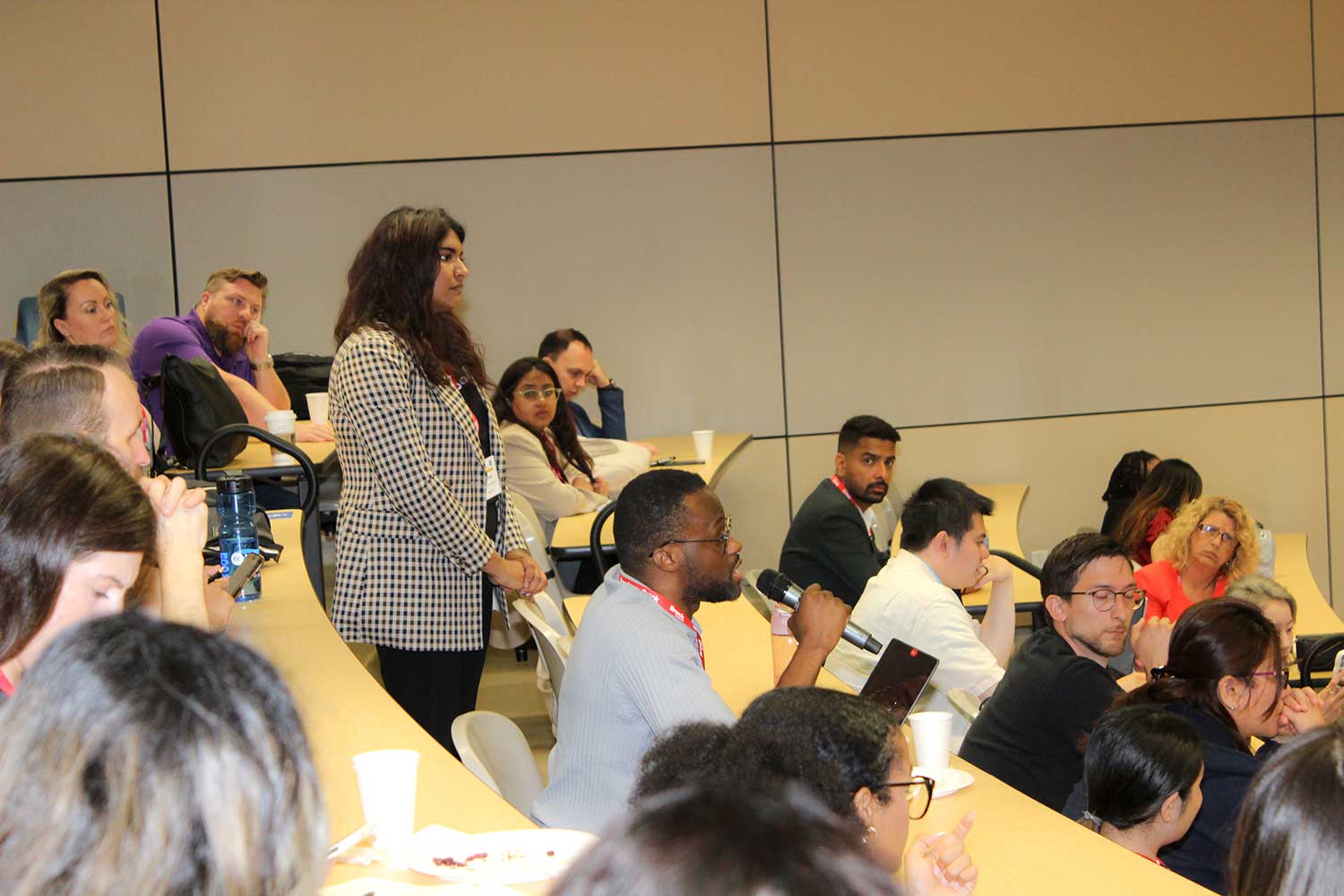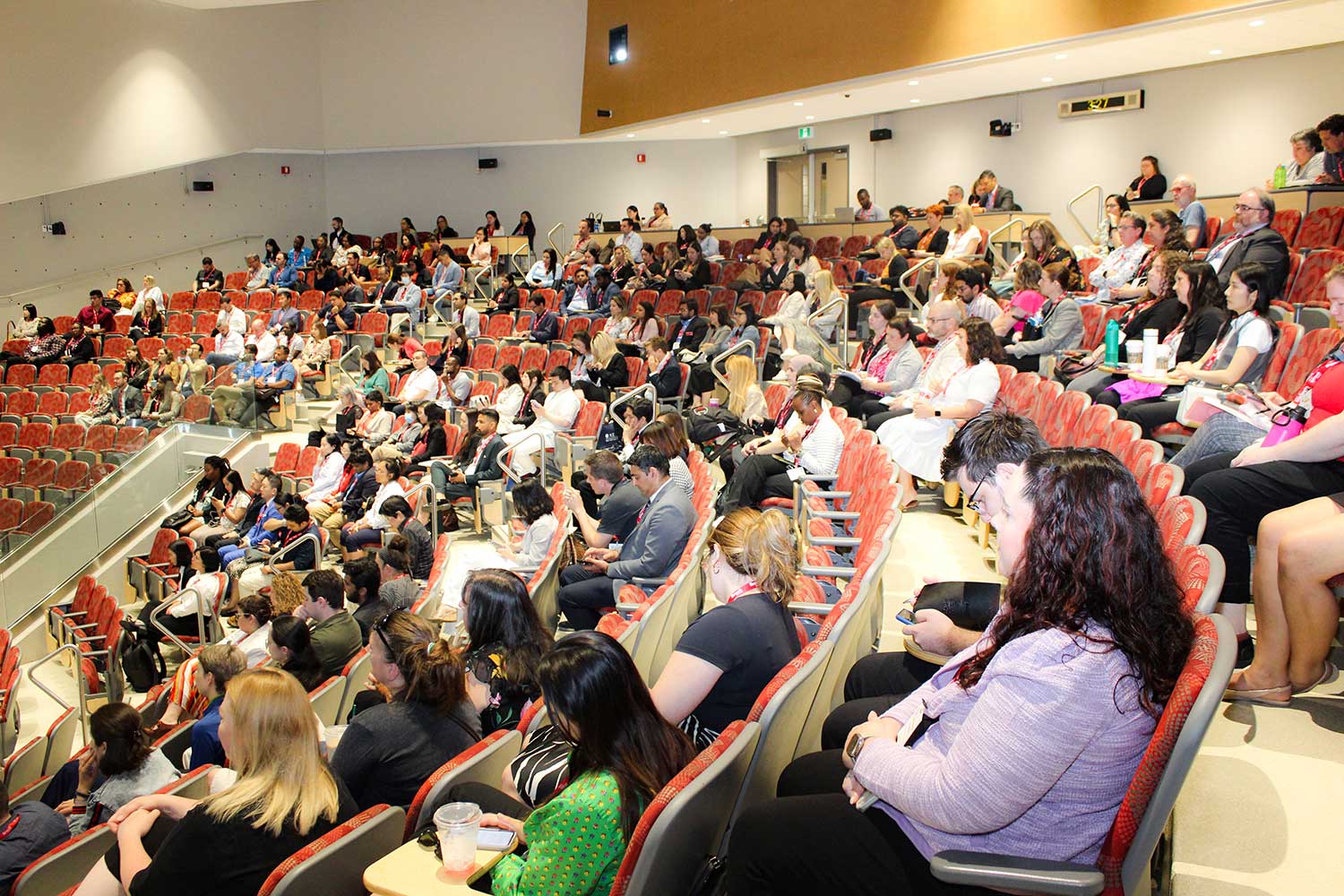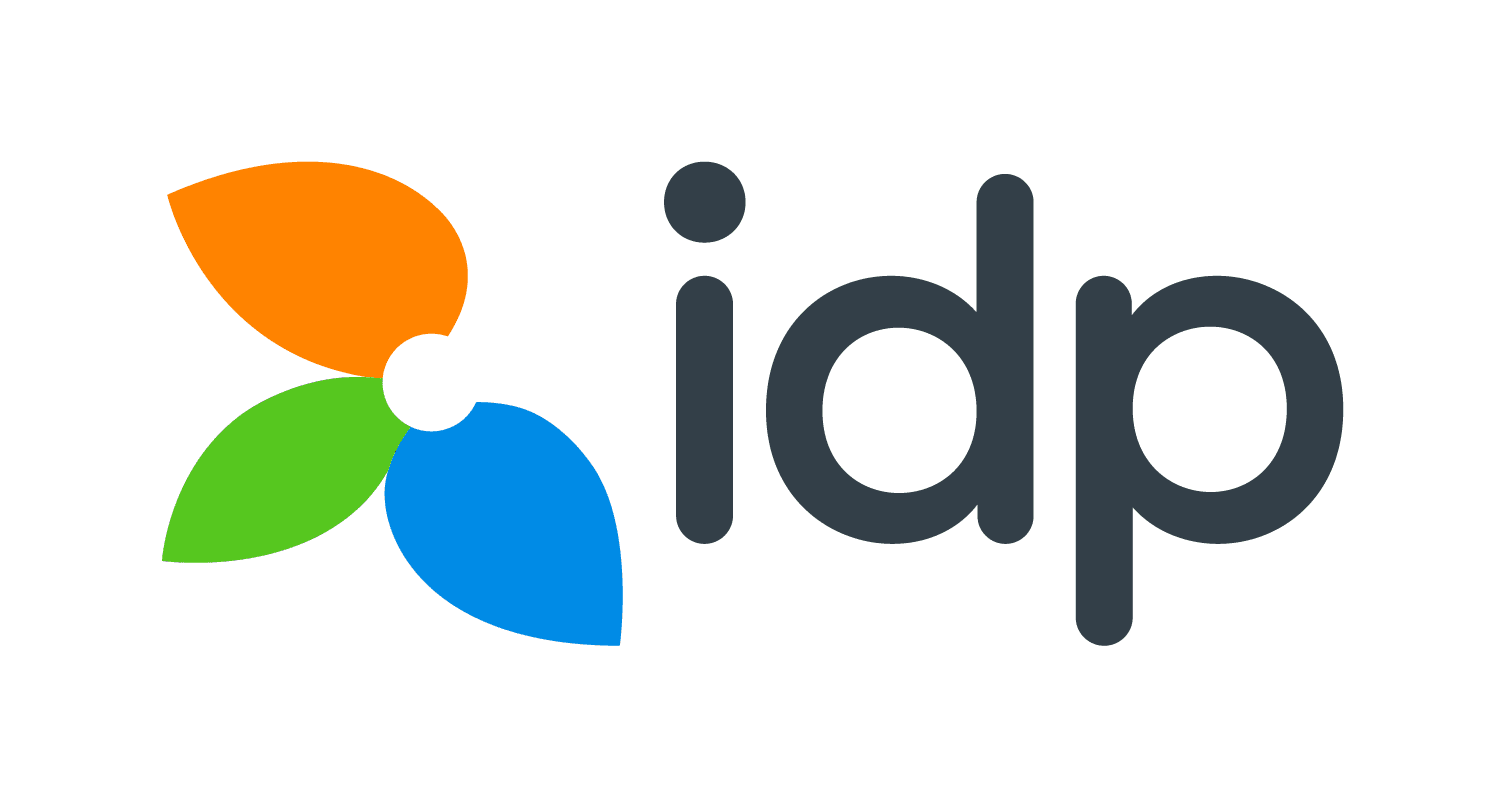Thank you to our colleagues at this year’s host institution, Brock University, for their leadership and contribution to advancing international education in the province.
About This Event
Brock University hosted CBIE’s 2024 Ontario Regional Meeting. This event focused on the future of international education through a series of sessions, roundtables and networking activities.
CBIE would like to thank Brock University and each of the organizing committee members for their hard work. We would also like to thank the presenters and participants, as this event cannot be successful without your participation.
Why Attend This Event?
- Network with international education professionals
- Hear from thought-leaders on important IE topics
- Participate in Q&A with sector stakeholders from Canada and the world
Who Will Be There?
- International education practitioners and leaders from K-12 schools, colleges, institutes and universities
- Corporate partners and association colleagues
Registration
Cost: $160 per person
No additional fee: Optional Niagara Falls excursion – sponsored by Niagara College.
Call for Proposals
We invite you to be part of the 2023 Ontario Regional Meeting Program!
This year’s Ontario Regional Meeting theme is Embracing the Changing Landscape of International Education.
A widening gap between the skills needed in the labour market and those offered by the workforce due to the pandemic and automation, a changing student demographic, breakthrough technologies, and shifting socioeconomic forces are reshaping the landscape of international education.
As we explore the shifts and changes in international education, we are eager to delve into a range of thought-provoking questions and hear your insights and perspectives on topics such as student advising, global engagement, international partnerships, equity, diversity, and inclusion, and innovative teaching and learning.
Together we seek to answer some critical questions within the IE sector.
- How can student advising be adapted to meet today’s students’ changing needs and expectations?
- What are the next waves of international student recruitment in the 2020s?
- How can students be supported as they experience deepening mental health issues exacerbated by international events, such as war and natural disasters in their home countries?
- How do we foster engagement and help students build community before their arrival?
- How can technology facilitate global engagement and cross-cultural communication among students and educators?
- How can global engagement programs be designed to ensure equitable and inclusive participation for students from diverse backgrounds?
- Who is Gen Alpha, and what will their demands of international education be?
- How can global engagement programming align with sustainability and environmental stewardship?
- What are the opportunities and barriers to global pathways in the next decade?
- How do we leverage collaboration with community organizations and businesses to close the gap between education and industry?
- How can international education break barriers and empower people of all backgrounds to achieve their potential?
- How could Gen Z get inspired to be the new generation of social justice warriors?
- How can we enhance personalized learning for students with diverse learning needs and styles?
- How is Universal Design for Learning being leveraged to support international learners and learners from diverse communities?
The deadline to submit your proposal is April 28, 2023.
Program at a Glance
The program is subject to change.
08:00 – 09:00: Registration and Breakfast Reception
Start the CBIE Ontario Regional Meeting by tuning into your inner leadership skills! This session will offer leadership highlights and strategies from Presidents Lesley Rigg from Brock University and Ana Serrano from OCAD. Together, they will share their personal experiences, approaches, and philosophies on leadership in higher education, offering valuable lessons and perspectives for all aspiring leaders in attendance.
10:00 – 10:15: Health Break
Student preferences are shifting and at the same time a wide range of government policies are on the horizon. As these policies are starting to come into shape, it’s important to assess the state of international student mobility, preferences, and the trends shaping the future of the education sector.
Hear from the ApplyBoard team, as they delve into the data, trends, and government policies around the world that will impact your recruitment strategies. This includes taking a deep look at student preferences, source market trends, destination trends, and the correlated impact we are already seeing.
Presenter:
- Aaron McKee, Partner Relations Manager, ApplyBoard
- Ian McRae, Senior Partner Relations Manager, ApplyBoard
- Leanne Nair, Partner Relations Manage, ApplyBoard
Niagara College presents a distinctive service approach tailored for our international student body. Central to this approach is the integration of International Student Assistants, serving as primary support within our college community. This session aims to delve into the multifaceted advantages and prospects of this model, spanning from high-level senior leadership insights to strategic operational considerations, and culminating in the invaluable perspectives of the students themselves.
Presenters:
- Shawna Luey, Sr. Director, International Students, RISIA, Niagara College
- Fernando Gama, Director, International Student Services, Niagara College
- Michelle Silk, International Student Services Coordinator, Niagara College
- Gustavo Comonian, International Student Assistant, Niagara College
Karen Burkett recently conducted an environmental scan of EAP providers at English-medium universities across Canada. This scan started with looking at key international student related data for each university followed by a review of each individual website for their EAP program providers. Key findings from this environmental scan will be presented and situated within a wider literature review. A clear picture of our sector will emerge that highlights long-standing barriers and points to potential opportunities relevant to decision-makers and leaders who work at universities with EAP programs.
Presenter:
- Karen Burkett, Director, Queen’s School of English
We all know how important emotional support is to the success and safety of Study Abroad programs. But how does that care continue once a student (or staff member) returns home? What plans does your school have to meet this important need? And where can you turn for guidance?
Our expert panel takes a look at how to link care between abroad and home and what resources are available. You will hear how Brock University is tackling this challenge, as well as actionable information you can use to help your institution.
Presenters:
- Marla Terreberry-Portfilio, Associate Director, International Services, Brock University
- Jayne Crawley, Manager, International Learning Programs, Brock University
- Dana Ercolani, Coordinating Nurse, iSOS
- Rob Gould, VP, Student & Canadian Business Solutions, Workplace Options
Presented by the IR-PLC Steering Committee – join us for an interactive and open dialogue, as we bring our IR-Connect event format to you in person. This discussion will look at the intersection of global engagement work at our institutions and advancing the Sustainable Development Goals (SDGs). Presenters will share how their institutions align strategic plans and partnership with the SDGs, leveraging global engagement and partnership development for SDG achievement. Attendees will be encouraged to share good practices and exchange ideas for incorporating the SDGs into their current and future priorities or projects.
The session will provide a space for peer exchange of good practices. Participants can expect a highly interactive discussion guided by prompting questions, and walk away with new ideas, approaches, and connections. The session will allow time for informal networking as well.
This session is ideal for IR professionals looking to integrate climate action and sustainability into their work.
Presenters:
- Kimmy Do, Manager, Global Initiatives, Partnerships and Programs, Humber College
- Natasha Fernandez, Manager, Global Engagement and Partnerships, University of Guelph
- Recep Demir, Manager, Global Partnerships, York University
11:15 – 11:20: Break
This presentation will focus on the value and potential of international student recruitment for Ontario universities in markets other than China and India. We will outline key challenges in Chinese and Indian markets such as the current geopolitical tensions involving India and Canada, and the increased scrutiny of Chinese students as potential threats to Canadian security (Tunney, 2024), alongside the increased concern by India and China themselves about brain drain despite recent economic liberalization of their markets (Taplin, 2023). These factors, combined with new changes to the Post-Graduate-Work-Permit (PGWP) program (Immigration, Refugees and Citizenship Canada, 2024), have had a cooling effect on the largest source of international students. This is at a time when Ontario universities are facing huge deficits up against the restrictions in domestic tuition increases (Casey and Jones, 2023).
Presenters:
- Karuna Ausman, International Marketing & Recruitment Specialist, University of Waterloo
- Anna Guo, Associate Director, International Student Recruitment, Brock University
- Grant Leach, Director, Marketing and Recruitment, University of Waterloo
Join to learn how one of North America’s largest post secondary institutions is setting international students up for success on its campuses through a targeted fund for faculty andstaff. U of T’s International Student Experience Fund (ISEF) is achieving institution-wide impact through the shaping, seeding, and amplification of ‘local’ innovative projects.
The presentation will feature a case study of the U of T’s International Student Experience Fund (ISEF). The session will be organized around ‘Lessons learned’ from the conception of the Fund in 2018 to the present. Lessons will be sequenced chronologically, as ‘steps’ in the roadmap/ blueprint for setting up your own fund. Steps will include: building a case/ securing support; scoping the fund (setting proposal guidelines, funding tiers, eligibility criteria); setting up an adjudication framework; project monitoring; reporting/ demonstrating impact. Session slides will follow this sequence.
Presenter:
- Michelle Beaton, Director, International Relations, University of Toronto
This presentation will share an important project that Queen’s University School of English has embarked upon, which involved transitioning from a passive and reactive academic advising service, to a more proactive model typified by one key policy — one-to-one opt-out meetings for every student with the student advisor. This session will share details of the methodology used, student feedback from before the change and after, and discuss the pros and cons of such a change. Participants will leave this session with a concrete idea of the effectiveness of ‘mandatory’ opt-out meetings, and how to implement it in their respective academic contexts.
Presenter:
- Steven McWilliams, Educational Developer, Queen’s School of English
The University of Guelph will present best practices for assisting students in identifying and articulating transferrable skills gained through study abroad experiences. Categories such as communication skills, critical thinking skills, discipline-specific skills and personal development and interpersonal skills will be further examined through specific skills and examples.
As a campfire session, attendees will be expected to engage in conversation regarding transferrable skills gained through study abroad, using these transferrable skills to market study abroad, and how to best educate the participants in leveraging this experience for future employability.
Attendees will develop an inventory of transferrable skills, based on various categories, specific skill sets, and practical examples within the study abroad context. They will also discuss how to use these transferrable skills to promote study abroad and supports re-entry programming. Lastly, the session will be relevant to attendees who may be interested in engaging in a community of practice around the predeparture, re-entry, and wrap around supports as part of the Education Abroad Professional Learning community.
Presenters:
- Mike Lafleur, Education Abroad Advisor, University of Guelph
- Jaqueline Veres, Marketing and Communications Coordinator, University of Guelph
Attracting and vetting the right international students is crucial. World Education Services (WES) stands out by offering credential evaluations that mitigate fraud risks and help you understand international education qualifications. This session will demonstrate how WES evaluations strengthen your admissions process, ensuring you admit qualified individuals with legitimate study. We’ll also highlight key trends in student mobility, with an emphasis on a top sending region. Discover how WES not only enhances your institution’s global appeal but also fortifies your admissions against academic fraud, supporting your internationalization efforts securely and effectively.
Presenters:
- Aliyyah Nazeem, Business Development Manager, WES
- Daye Lim, Exemption Specialist, WES
12:20 – 13:45: Lunch & Networking
In this session, we’ll delve into the intricacies of engaging with in-country recruiters. We’ll provide a transparent look at our strategies, including tailored training initiatives, integration of technology, and cultivation of strategic partnerships, which have empowered our in-country recruiters to serve as effective representatives for our institution on a global scale.
Join us as we explore the challenges and opportunities inherent in working with in-country recruiters. Through practical examples and in-depth discussions, attendees will gain valuable insights into navigating this vital aspect of international recruitment. Don’t miss this opportunity to shine a spotlight on those who are out of sight but certainly not out of mind. This session offers a unique opportunity to learn from our experiences and discover strategies to enhance collaboration and maximize recruitment outcomes with in-country recruiters.
Presenters:
- Alisha Koumphol, Manager, International Recruitment & External Operations, Brock University
- David Venneri, Recruitment Manager, Trent University
- David Zhou, Manager International Recruitment, Algoma University
- Sagebelle Wu, Assistant Director, International Student Recruitment, University of Toronto
One of QSoE’s key pillars is the idea of giving back to our communities. This presentation will share five projects that QSoE has undertaken to give back: Refugee sponsorship, where QSoE fully funds several semesters of tuition for newcomer students suggested by local settlement groups in Kingston, ON; our free, online English course for beginners, a six-module course which has had more than 40,000 enrolments worldwide; QSoE Volunteer Club, a student focussed and directed extracurricular club that helps local community groups every semester through volunteerism, fund raising, or awareness raising; workshops for partners, where QSoE delivers tailored content drawing on our English language expertise to assist faculty and international partners; and national scholarships, where QSoE offers different tiers of pricing depending on the applicant’s country to promote equity and diversity in the students who are able to attend.
Participants will leave this session understanding the benefits of reciprocity and will have examples of how reciprocity can work in the Canadian education sector to take back to their home institutions for potential implementation.
Presenters:
- Amie Pilgrim, Academic Manager at Queen’s School of English
- Steven McWilliams, Educational Developer at Queen’s School of English
This is an in-person Student Advising – Conseil aux étudiants (SACE) Connect session hosted by fellow international student advising colleagues who are also the SACE Steering Committee members. SACE Connect is an interactive session for international student advising professionals to discuss current matters related to IRCC policies.
In this session, we will be discussing recent immigration policy updates and the challenges advisors may face when advising international students. Through the interactive discussion among student advising professionals in the community, we will reflect on the best practices and explore resources we can utilize to help us navigate these challenges. Some of the topics may include International Student Program Reform and Provincial Attestation Letter (PAL) policy and implementation.
This session, divided into two parts, will examine the recent immigration policy changes affecting international students. In the first part, we will present an overview of announcements from IRCC and Ministry of Colleges and Universities made within this year. In the second part, based on the questions collected from the participants, we will engage in a discussion to reflect on the recent policy changes, and share best practices to proactively develop strategies to brace for the changing landscape of the governmental policies.
Presenters:
- Melinda Meng, International Student Immigration Specialist, Seneca Polytechnic
- Lifen (Ashley) Wu, International Student Advisor, Ontario Tech University
As an instructor, have you ever felt that existing textbooks can struggle to engage and meet the needs of your students? We certainly experienced this concern and as a result embarked on a journey to create our own textbook. While the development was an evolving one, fraught with challenges, ultimately, we settled on a fully integrated, interactive ESL e-textbook that we published in-house using Pressbooks and the interactive H5P plug-in. This presentation will outline the process we underwent in writing the e-book for our Intensive English Language Program (IELP), as well as describe and demonstrate key elements, such as how H5P interactions engage learners and foster independent learning. We will share our experience using Pressbooks and the H5P tools and show excerpts from our e-textbook(s), which are now in use in our Level 4 and 5 classes.
Presenters:
- Eldon Friesen, ESL Academic Development Coordinator, Brock University
- Donna Pearce, ESL Student Development Coordinator, Brock University
CBIE will present key findings from a national data collection exercise on learning abroad that was held in the spring of 2023. This initiative aimed to deepen understanding of the Canadian outbound mobility landscape and surface trends to inform evidence-based decision-making and foster an inclusive and supportive ecosystem for future learning abroad programming. The presentation will offer insights from data contributed by post-secondary institutions across Canada. To contextualize the lived experience, data collected from students and alumni learning abroad participants will also be presented.
Presenter:
- Melissa Payne, Director, Membership, Research and Learning, Canadian Bureau for International Education
14:45 – 14:50: Break
This presentation explores Ontario’s international education policy landscape since 2005 through illuminating the shifting terrain of the international education policy landscape influenced by the (re)emergence of diverse discourses. The presentation highlights that international education in Ontario is constructed as a policy solution to policy problems beyond the education sector; the multiplicity of policy actors who come from diverse scales, levels, disciplines, and contexts; and the emergence of nationalistic discourses which threaten the core principles of internationalization. International education policy context in Ontario can be highly political and influenced by non-education policy spaces and discourses.
Presenter:
- Dr. Amira El Masri, Director, Office of International Affairs, McMaster Global
16:00 – 17:30: Networking Event
Enjoy an evening visit to the beautifully lit Niagara Falls Power Station Experience, which includes an up-close view of the Falls! Transportation from the Residence 8 location will be provided to the famous Niagara Falls for your 7:00 p.m. group tour. After the self-guided tour, visitors can explore on their own before boarding the bus back to the Four Points Sheraton and Brock University.
This activity is generously sponsored by Niagara College.
08:00 – 08:30: Registration and Breakfast Reception
Moderated by Larissa Bezo, President and CEO of the Canadian Bureau for International Education, this session will offer perspectives from institutional leaders about the recent policy changes announced by Immigration, Refugees and Citizenship Canada’s (IRCC) in January 2024. Together, they will discuss how to ensure the success of individual international students and enable Canada to benefit from their training and skills, securing Canada’s long-term position as a top destination for international education.
This session has been approved by CICC for 1.5 hours of CPD.
10:00 – 10:15: Health Break
Join us for an exciting session where attendees will unlock the secrets to transforming their recruitment trips into extraordinary opportunities for success! Led by a dynamic panel of recruiters, both fresh faces and seasoned experts, this session promises a treasure trove of actionable strategies and invaluable insights.
Discover effective ways to combat jet lag and travel fatigue, allowing you to maintain peak performance throughout your trip. Explore the art of strategic planning to streamline your itinerary and capitalize on opportunities for meaningful engagement. By the end of the session, attendees will leave equipped with actionable insights to elevate their recruitment trips from routine journeys to impactful experiences that drive success.
Presenters:
- Alisha Koumphol, Manager, International Recruitment & External Operations, Brock University
- David Zhou, Manager International Recruitment, Algoma University
- Sagebelle Wu, Assistant Director, International Student Recruitment, University of Toronto
- Chérisse Mike, Undergraduate Recruitment Officer, University of Waterloo
In light of the conflict in Ukraine which started in February 2022, a significant number of Ukrainian individuals have sought refuge in other countries. Canada, renowned for its compassionate approach towards refugees and displaced persons, has embraced numerous Ukrainian migrants. Following their arrival in Canada, some of these migrants decided to pursue education at community colleges to enhance their employment-related skills and ease their integration into Canadian society. This empirical study draws on the psychological resilience theory and the social support theory to examine the challenges these students face, the coping mechanisms they use, and the support they receive from their colleges and Canadian society as they make new lives for themselves.
The findings reveal that the participants experience mental health risks associated with stress, anxiety, helplessness, and isolation, owing to concerns about family members in Ukraine and difficulty adapting to a foreign environment. Financial worries also loom large for the students because of their families’ loss of property and income, as well as their limited job opportunities in Canada. Even though the study participants were Ukrainian international community college students affected by the war in their country, the findings highlight the need for community colleges to provide special support to all international students who go through geopolitical and humanitarian crises.
During our presentation, we aim to prompt attendees to reflect on their encounters with aiding international students who have undergone severe trauma. Through these discussions, we aspire to foster the exchange of best practices and the development of effective support initiatives for such students.
Presenters:
- Oleg Legusov, International Student Immigration Specialist, Seneca Polytechnic
- Oleksandr Antonenko, International Student Immigration Specialist, Seneca Polytechnic
In this session, Brock International and the Registrar’s Office will share how we have come together to support several new initiatives in the last year. We will discuss changes we have made to policies and letters, the PAL rollout, how we are using the compliance report data, our collaborative approach to complex cases and how we are offering “one stop shop” advising. We will leave time at the end for participants to share what is working at their institutions, so we all benefit from each other’s best practices.
Presenters:
- Amy Ahn, International Student Advisor, Immigration, Brock University
- Koreen McCullough, Manager, International Student Supports, Brock University
- Colton Clause, Team Lead, Student Information & Service, Brock University
In this session, Niagara College will discuss their approach to developing academically impactful break week experiences abroad.
Presenter:
- Maxine Semple, Associate Director, Cultural & Global Engagement, Niagara College
The International Network of Tomorrow’s Leaders (INTL) is a Professional Learning Community (PLC) of CBIE. In this session, attendees will learn more about the professional development and networking opportunities available for new professionals with INTL. There will be a brief presentation about INTL and all that if offers as well as a time to ask any questions you might have as a new professional to the field and network with others.
Presenters:
- Jacqueline Veres, Marketing and Communications Coordinator, University of Guelph
- Lifen (Ashley) Wu, International Student Advisor, Ontario Tech University
11:15 – 11:20: Break
In this session, speakers will showcase global policy updates, student demand trends across Canada with a focus on Ontario, and IDP regional feedback on IRCC policy announcements. The session will also discuss the latest student survey results, revealing changing perceptions of Canada as a destination country following the recent policy changes.
Presenters:
- Luna Das, Director of Client Partnerships (Canada), IDP Education
- Mishal Eshai, Associate Head of Client Success, IDP Education
Most students require support to find off-campus housing, this is especially true for international students. Join us to learn about our interdepartmental, collaborative approach to supporting international students through their off-campus living experience from finding accommodations to knowing their rights as tenants. We will explore strategies and resources available to support student tenants and discuss how we empower students with information to become self-advocates. We will also discuss different and creative solutions to support students living off-campus including community organization resources, and alternative housing options like home-sharing with local hosts.
Presenters:
- Syerra Jasmin, Off-Campus Living Coordinator, Brock University
- Rylan Kinnon, Co-Founder and CEO, SpacesShared
This session will talk about Visiting Scholars who can be either faculty, researchers or students who are interested in conducting research and working at the university for a limited time under the supervision of a host faculty member. We will cover their application process and how to coordinate Immigration, Refugees and Citizenship Canada (IRCC) related processes. We will also be talking about the relationship with the host supervisors and faculty deans.
Presenter:
- Cristina Preece, RISIA, International Mobility Officer, Ontario Tech University
Academic integrity is a crucial aspect of higher education and language learning that fosters intellectual honesty and upholds the principles of fairness and trustworthiness (Stoez & Eaton, 2020; Kang, 2022). As the integration of artificial intelligence (AI) technologies becomes increasingly prevalent in educational settings, it is imperative to examine how Canadian educational institutions are addressing the implications of AI on language learning and academic integrity (Eaton, 2023; UNESCO, 2023).
In this presentation, we will highlight a study aimed at shedding light on existing and emerging AI guidelines and policies developed and implemented by Canadian educational institutions. Through a review of the literature and a systematic document analysis methodology (Bowen, 2009; O’Leary, 2014), we explore alignments and gaps in existing academic integrity policies in the domain of language teaching and learning in Canadian higher education contexts. Findings of the study address some key implications on teaching languages with new AI technologies.
Presenters:
- Faith Marcel, TESL Graduate Certificate Program Coordinator, Niagara College
- Phoebe Kang, Professor. University of Toronto
Developing and stewarding international agreements is a multi-faceted undertaking that requires coordination, consultation and careful record maintenance. For institutions with hundreds of international agreements, the process of stewarding and reporting on international agreements becomes a daunting task.
At the University of Waterloo, a Client Relationship Management (CRM) software system is used to create agreement records, move and monitor agreements through the stewardship process, and continuously update and report on agreements with international partners.
In this session, the presenter will demonstrate how a CRM is used to efficiently manage international agreements and share challenges and best practices related to stewarding international agreements.
Presenter:
- Ahmed Baghdady, Manager, International Agreements, University of Waterloo
12:30 – 13:35: Lunch
With the establishment of the new College of Immigration and Citizenship Consultants, a new essential competency framework provided a more formal and expanded set of knowledge and skills that set out a RISIA’s professional and ethical obligations. Do you know them all? Are you working towards building your competencies in all areas of the framework? This session will overview the framework and workshop how these are paving the way for a more well-rounded and diverse professional field. We’ll look at how at this from various RISIA role perspectives and help you map out where you’d like to grow your essential competencies in your career.
Presenter:
- Shawna Luey, Senior Director – International Students, RISIA, Niagara College
This session has been approved by CICC for 1 hour of CPD.
14:35 – 14:45: Closing Remarks
Parking on Campus
CBIE guests can park in the University’s main parking area, Zone 1, at no cost. Parking is also available closer to the event location in Lot D for $14 a day. Brock University exclusively uses HONK mobile as a convenient, customer-friendly payment method. View the Brock University Campus Map and Paid Parking resources for more details.
Accommodations
Brock offers semi-suite style residences, with a single bed, dresser, and desk. All rooms are single occupancy with a four-piece washroom shared between two single rooms accessible by elevators located in the main lobby. Parking is included for all residence guests along with complimentary wi-fi.
Group Name: CBIE Regional Meeting
Campus
Thank you to our panellists and presenters.

Francisco Marmolejo
Qatar Foundation

Elizabeth Buckner
University of Toronto

Andrew Ness
Humber College

Ishwar K. Puri
McMaster University

Peter Mascher
McMaster University
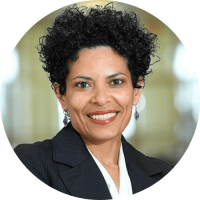
Arig al Shaibah
McMaster University

Alyssa Lai
International Student Alumni

Yasmin Razack
Centennial College

Bonny Ibhawoh
McMaster University

Meghna Ramaswamy
University of Saskatchewan

Monika Froehler
Ban Ki-Moon Centre
for Global Citizens

Andrea Baumann
McMaster University
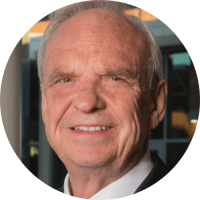
Charles Hopkins
York University

Omar Hernández
United Nations
Academic Impact

Anver Saloojee
Ryerson University
The 2024 CBIE regional meeting provided a great opportunity for colleagues to gather and have important conversations related to IE in a provincial context. The in-person format of the event enhanced engagement and connection within the sector. The event not only facilitated meaningful dialogue and collaboration among international education professionals but also underscored the importance of continued innovation and adaptation in the ever-evolving field of global education.
– Christina Bosilo, MA, Director, Brock International
Thank You to Our Organizing Committee
Anna Guo, Brock University
Carly Dugo, Brock University
Cecilia Garcia Vega, Brock University
Christina Bosilo, Brock University
Courtney Keogh, Brock University
Jessica Petrella, Brock University
Matthew Melnyk, Brock University
Marla Terreberry-Portfilio, Brock University
Sophie Jodouin, Canadian Bureau for International Education


